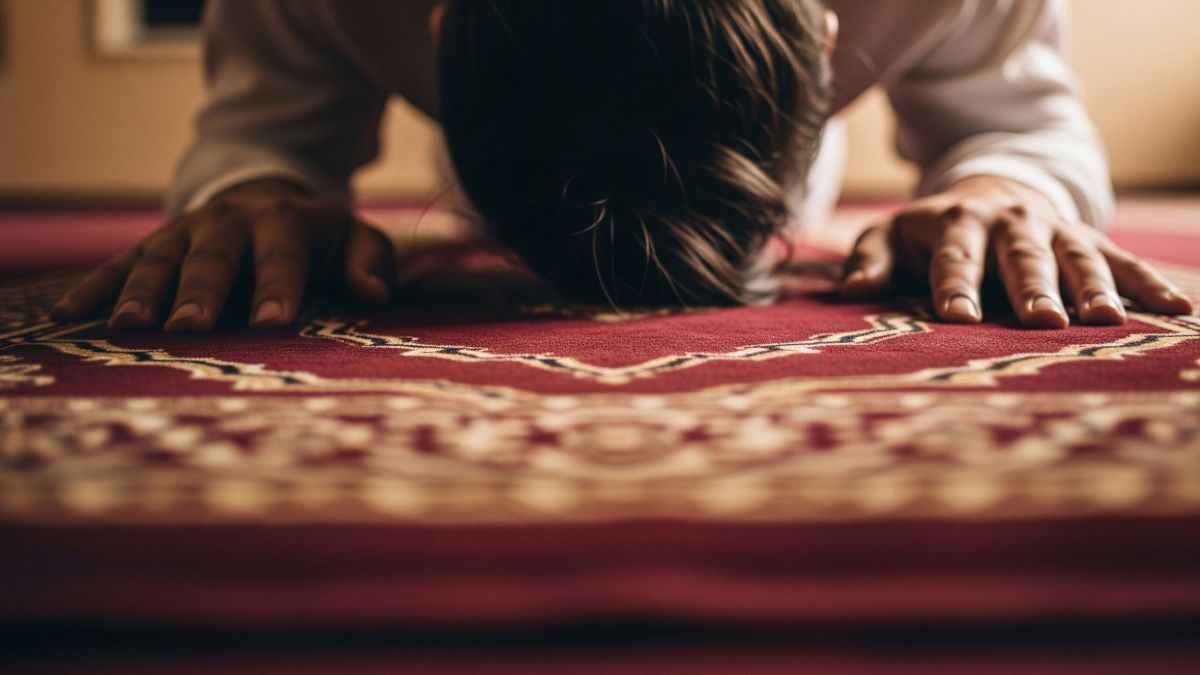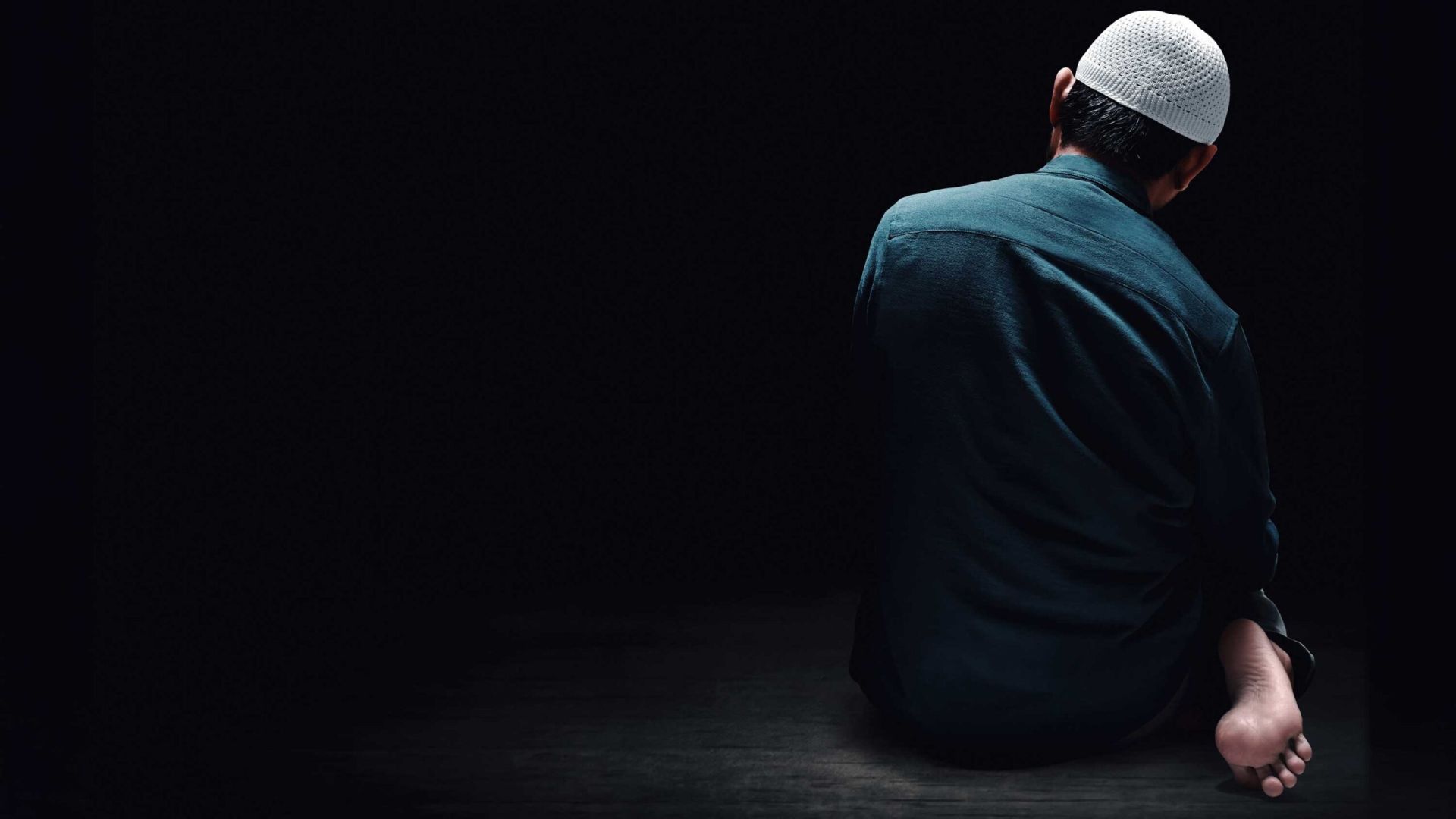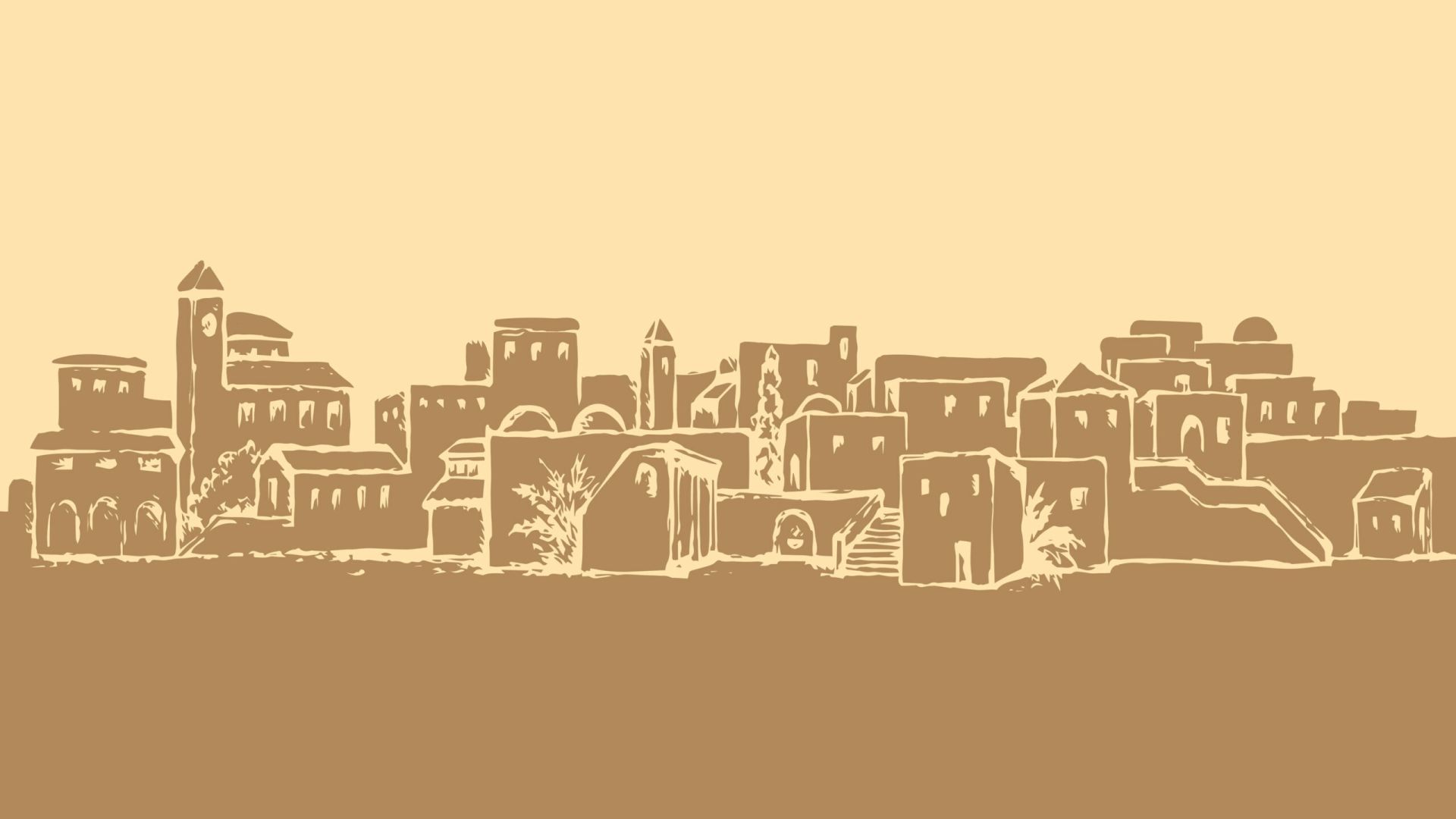Rulings on Preventing a Person (or Animal) from Passing Before a Praying Person
Imām Muḥammad ibn Ṣāliḥ al-ʿUthaymīn
Rulings on Preventing a Person (or Animal) from Passing Before a Praying Person
Imām Muḥammad ibn Ṣāliḥ al-ʿUthaymīn


The First View (Mubāḥ): It Is Permissible to Prevent Passing (Mubāḥ)
According to the author of Zād al-Mustaqniʿ1, it is permissible (mubāḥ) for the person who is performing ṣalāh to prevent the passage of any living creature in front of him whilst he prays. This is comprehensive of both human beings and other living things, just as it encompasses that which nullifies one’s ṣalāh and that which does not. In consideration of this permissibility, if someone attempts to pass in front of a person performing ṣalāh, the praying person has a choice: he may prevent him in which case he is not deserving of reward, or he may permit his passing for which he is not deserving of sin. For this is the reality of all acts in Islām deemed permissible (mubāḥ). This would even apply to the passing of that which nullifies one’s ṣalāh like a female: that is, the praying person may choose to prevent her or allow her passage before him.
The Second View (Mustaḥabb): It Is Recommended to Prevent Passing
This opinion is contrary to the Ḥanbalī madh`hab which espouses that the prevention of this passing should be considered Sunnah (i.e., mustaḥabb): that is, it is legislatively desirable for the person who is praying to actively prevent anyone from passing before him whilst he prays. This opinion is evidenced by the command of the Prophet (صلى الله عليه وسلم) in the ḥadīth: “If a person among you is performing ṣalāh towards that which shields him from the [passing of] people before him, but a person still wishes to pass before him, then the praying person must defend himself from him. If he refuses, then he should fight him (i.e., prevent him), for he is nought but a shayṭān”.2 Here, he (صلى الله عليه وسلم) ordered the praying person to defend himself from this passing. This command is meant to indicate that this act should be considered mustaḥabb at the very least. In another ḥadīth, he (صلى الله عليه وسلم) also said: “If one of you is praying, he must prevent the traversal of anyone before him. If the passer by refuses, he should fight him. For, indeed, he has with him an intimate companion [among the shayāṭīn]”.3
The Third View (Wājib): It Is Obligatory to Prevent Passing
There is also another narration from Imām Aḥmad that postulates that this prevention should be considered obligatory: that is, the one who allows another to pass before him whilst he prays is sinful regardless of whether that which passes before him belongs to the category of living things whose passing by nullifies one’s ṣalāh or not. This opinion is evidenced by the statement of the Prophet (صلى الله عليه وسلم) as in the aforementioned ḥadīth: “then the praying person must defend himself from him”. The formulation of a command denotes obligation. This obligation is further bolstered by him (صلى الله عليه وسلم) also saying “if he refuses, then he should fight him”, despite fighting another Muslim normally being impermissible as in the ḥadīth: “Insulting another Muslim is a form of rebellious sinning, and to fight him is a form of disbelief”4. Although it should be noted that the meaning of ‘fight him’ in the context of preventing the passing of a person is to block his advancement with commensurate, reciprocal, sufficient force and severity. He (صلى الله عليه وسلم) did not intend that the person performing ṣalāh should attack this passerby with weapons he possesses; that is, he did not condone the outright murder of this passer by. Rather, it is legislated for him to fight him in a manner commensurate with the circumstance. This fighting should also not be so severe such that it leads to actual bodily harm, as engaging in such fighting with another Muslim is ḥarām except in the presence of the factors and conditions which would render such fighting permissible.
The proponents of this opinion reason that the Prophet (صلى الله عليه وسلم) would not have commanded anyone to engage in that which is fundamentally ḥarām (i.e., fighting another Muslim) except for the fulfilment of that which should be considered obligatory. Thus, fighting is only mentioned because defending against the passer by is an obligation, as permissibility of enacting that which is (normally) ḥarām only comes about in the face of necessity.
They also further justify their position saying that this prevention proffers the benefit of reprimanding and discipling this transgressor. As the one who is attempting to pass before you while you are actively praying has actually attempted to transgress against you. For this reason, the Prophet (صلى الله عليه وسلم) said: “For he is nought but a shayṭān” and in another narration: “For indeed, he has with him an intimate companion [among the shayāṭīn]”: that is, there is a shayṭān who is commanding him to pass before this praying person, and the prevention of any form of transgression against another is considered an obligation.
They also support their opinion by saying that this prevention is a means towards reviving the hearts of the neglectful, as the majority of people walking in the masjid do so whilst their gazes are carelessly directed upwards, completely devoid of any concern or attention for whether those they are passing before are praying or not. In consideration of this, if you were to prevent them from walking in front of you while you are praying, it would have the added benefit of notifying the neglectful and careless people among the community. This opinion of Imām Aḥmad—as you may appreciate—is quite strong, both in terms of evidence and overall rationale.
The Fourth View: The Affair Requires Elaboration of Preventing the Traverser
It may also be possible to derive another opinion in this issue which is to differentiate between the living things whose passing stipulates the nullification of one’s ṣalāh and those that do not. That is, it should be considered obligatory to prevent the passing of anything that nullifies one’s ṣalāh, but not obligatory to prevent anything else from passing because the very extent of this latter passing is the rendering of one’s ṣalāh deficient while not completely nullifying it. This is contrary to the living things that necessitate nullification and complete corruption of the ṣalāh, especially if one of the farḍ (obligatory) prayers are being performed. The permittance of anything that nullifies a farḍ ṣalāh is akin to intentionally severing its performance after starting it which, as far as the farḍ prayers specifically are concerned, is fundamentally impermissible. This opinion is in the middle between those who view preventing this passing as mustaḥabb and those that apply a ruling of wājib to it. It is also a strong opinion.
The Passing of an Adult Woman, a Black Dog, or a Donkey
To clarify this, for example, if an adult woman, a black dog or a donkey [all of which nullify the ṣalāh]5 were to attempt to pass before a praying person, it would be considered obligatory to prevent these living things from passing. This is contrary to if a man, a prepubescent female or any other animal besides a donkey or a black dog were to attempt to pass, in which case it would not be obligatory to prevent them. Rather, it would be considered mustaḥabb (recommended).
Differentiating Between the Farḍ (Obligatory) and Nafl (Supererogatory) Prayers
It may also be most appropriate in this issue to differentiate between the farḍ and nafl prayers; that is, one is obligated to prevent any living thing that nullifies his ṣalāh from passing before him whilst he is performing any farḍ ṣalāh only, but not the nafl. This is because it is ḥarām for anyone who begins the performance of an obligatory ṣalāh to sever his performance of it except in extenuating circumstances. Otherwise (if a person is performing nafl or that which is attempting to pass before him does not nullify his ṣalāh), it is considered mustaḥabb (recommended) to prevent their passage.
These varieties of detailed elaboration between the two judicial views in such issues are rampant in the discourse of Shaykh al-Islām (Ibn Taymiyyah). He (رحمه الله) will often describe his position in such matters as being representative of ‘the stance of those who hold it to be a religious obligation’ and similar phrases. An example of this is his opinion regarding witr which is that its performance is considered obligatory for the person who intends to perform the night prayer. Regarding this, he says: “It represents a proportion of the view of those who have obligated it”. This is because there are three opinions on the ruling of witr ṣalāh:
- It is Sunnah (i.e., mustaḥabb) in all circumstances which is the correct opinion.
- It is obligatory in all circumstances.
- Elaboration is needed, which is the view of Shaykh al-Islām.
In this way, the opinion that it is considered obligatory specifically to prevent any living thing that nullifies the ṣalāh from passing before the praying person represents a proportion of the opinion of those who espouse this prevention as being obligatory.
[Q]: Why do some scholars—like the author of Zād al-Mustaqniʿ—appear to deem this prevention as only permissible whilst the Sunnah clearly commands it?
[A]: This may be interpreted as referring to permissibility in the context of one who surmises fundamental unlawfulness or dislike, related to the fact that preventing the passing of a person represents a form of movement that is not attributable to the (actions of) ṣalāh itself. The assumed state of all such movement in ṣalāh is either disliked or impermissible. Therefore, the ruling of permissibility that is implied here is meant to negate this usually disliked or impermissible behaviour. Considering this, it would not indicate that such movement should not be considered mustaḥabb: that is, it being recommended is a wholly valid opinion. Despite this, there are still scholars who postulate a completely independent and well-known opinion that this movement is permissible only (i.e., not mutaḥabb or wājib).
The Definition of “Passing Before” a Praying Person
When we delineate ‘passing before’ a praying person, there is a difference of opinion regarding what is actually considered ‘before him’. One opinion is that this should extend the span of three arm lengths forward from the feet of the praying person. Another opinion is that it should be the length of a stone’s throw: that is, a moderate, regular throw that is neither extremely strong nor weak. Another opinion is that it is the length of ground which is permissible for the praying person to cover before his ṣalāh is deemed null. It has also been said that the term ‘before him’ should be interpreted based on the customs of the people such that whatever distance is considered ‘before him’ by most people is the requisite distance of prevention.
Another opinion in this issue is that ‘before him’ should refer specifically to the distance that extends from the praying person’s feet to the place where he puts his head when performing sujūd. This view is the nearest to the truth in this issue as, logically, a person performing ṣalāh does not deserve more ground that he requires to perform its movements. He, therefore, has no right to prevent people from traversing on ground that he is not physically occupying to perform the movements attributable to his ṣalāh.
However, if the person who is praying has placed a sutrah6 before him, then no person should pass between him and it [regardless of where this sutrah is placed]. Considering this, the person performing ṣalāh should stand close to his sutrah such that he is placing his head right before it when performing sujūd. In this way, he ensures that he is not occupying more ground that he actually needs to perform ṣalāh. As the Prophet (صلى الله عليه وسلم) used to pray with the wall of the masjid as his sutrah, the distance between him and it akin to the space required for a sheep to pass.7
The Ruling on Those Who Pass Due to Extenuating Circumstances
The apparent interpretation of the wording used by the author of Zād al-Mustaqniʿ also appears not to differentiate between whether the passer by has a dire need to pass in front of the praying person or not. Here, a ‘dire need’ could be if the praying person is standing with the door of the masjid to his right or left and a person needs to leave the masjid by means of it. Here, notice that the Prophet (صلى الله عليه وسلم) simply said “but a person still wishes to pass before him” without mentioning any exceptional circumstances or differentiating between the passer being in dire need or otherwise. In the majority of circumstances, one does not pass before a person who he fully recognises as praying except if there is a clear need to do so. In light of this, how could we interpret this ḥadīth as not referring to that which occurs most frequently [i.e., the passer being in dire need of passing], claiming instead that the ḥadīth is referring only to that which is much less frequent [i.e., passing before a praying person without any clear need to do so]?
Therefore, the correct opinion in this issue is that there is no difference between the passer being in dire need to pass before the praying person or not. Regardless of his need or lack thereof, he has no right to pass before a person who is praying, as the Prophet (صلى الله عليه وسلم) said: “If the traverser before the praying person only knew the punishment he is subject to, standing for forty8 would be better than passing before him [i.e., the praying person]”.9
Preventing the Passerby in Masjid al-Ḥarām in Makkah
It is also most apparent that there is no caveat to this prevention that applies to Makkah or any other place. This is correct as there is no evidence to support the view of those who exclude Makkah from this rule save for the ḥadīth in which it was narrated that the Prophet (صلى الله عليه وسلم) “used to pray and the people would pass before him, and he did not place a sutrah between himself and them”.10 This ḥadīth has an unknown narrator in its chain that deleteriously affects its grade. Even if we were to accept it as being authentic, it should be interpreted as referring to the Prophet (صلى الله عليه وسلم) praying in the maṭāf (place designated for ṭawāf in Masjid al-Ḥarām). Those performing ṭawāf are the most deserving people of that place in the masjid because they may not perform it anywhere else therein while a person performing ṣalāh may pray anywhere else in the masjid. It is in reference to this caveat that certain scholars have applied to Makkah that al-Bukhārī titles a chapter in his Ṣaḥīḥ: “Chapter Regarding Sutrah in Makkah and Other Places”; here, he means to imply that Makkah is the same as any other place as far as sutrah is concerned.11
[Q]: What is the ruling on a praying person who attempts to prevent another from passing before him but this person manages to overcome him and pass anyway?
[A]: The passer by is sinful. As for the praying person, as long as he has attempted to fulfil the command of Prophet (صلى الله عليه وسلم) to the very best of his ability, but has fallen short of effectively preventing this person from passing before him, then his ṣalāh will not be considered deficient.
[Q]: What if the traverser is a woman who nullifies the ṣalāh?
[A]: It is most apparent that his ṣalāh should be considered nullified and that he should restart it from the beginning. Although I am uneasy and possess misgivings concerning this view, as the praying person here has implemented the requisite command to the extent of his abilities. The resultant passing of this woman did not occur by his own volition, nor is it attributable to his own negligence or carelessness. Thus, how is it fair for us to completely invalidate his worship because of the acts of another? The sinful one here, in actuality, should only be the passer by.
Contrarily, if this passing before him was facilitated by his own negligence or carelessness that he possesses towards his own ṣalāh—which is quite common among certain people—then his ṣalāh should undoubtedly be considered null and void in that case.12
Endnotes:
[1] Author of Zād al-Mustaqniʿ: Abū al-Najā Mūsá ibn Aḥmad Sharaf al-Dīn al-Ḥajāwī (d. 968 AH).
[2] Authentic: narrated by al-Bukhārī: 509 and Muslim: 505.
[3] Authentic: narrated by Muslim: 506.
[4] Authentic: narrated by al-Bukhārī: 48.
[5] Translator note: as evidenced by the authentic ḥadīth narrated by Muslim: 510.
[6] Al-ʿAllāmah Muḥammad ibn ʿAlī Ibn Ādam said: Sutrah is the name given to anything erected before a praying person that acts as an indication of the space needed to perform his ṣalāh. This may in the form of a stick for example. Termed sutrah (to protect or cover in Arabic) because it protects the praying person from those attempting to pass before him. See Dhakhīrat al-ʿUqbá 9:320.
[7] Authentic: narrated by al-Bukhārī: 496.
[8] Translator note: There is a narration of this ḥadīth with the addition of ‘years’ here taken from the narration of al-Bazzār: 3782, although this addition was graded weak by Shaykh al-Albānī in Silsilah al-Aḥādīth al-Ḍaʿīfah: 6911 and Tamām al-Minnah: 302 in which he mentions that Aḥmad narrated this ḥadīth from Sufyān saying: “To stand for forty—and I do not know whether he meant days, months, or years”. The narration of al-Bazzār with this addition was mentioned here by Shaykh Ibn ʿUthaymīn without clarification of its weakness. And Allāh knows best.
[9] Authentic: narrated by al-Bukhārī: 510 and Muslim: 507.
[10] Weak: narrated by Abū Dāwūd: 2016 and graded weak by Shaykh al-Albānī in Ḍaʿīf Abī Dāwūd: 344.
[11] Translator note: Addressing the traversers with dire need and those in Masjid al-Ḥarām, Shaykh Ibn ʿUthaymīn said: “It is impermissible to pass before the praying person except in three circumstances:
- If the praying person is being led by another: one may pass in front of him even if there is no real need, although it is better to avoid traversing in front of him to facilitate his maintaining concentration in the ṣalāh. However, if he does pass in front of him, he is not sinful.
- The one who chooses to pray in the pathway of the people: for example, in front of the only door to the masjid. In this circumstance, such a person is undeserving of respect or veneration as he has chosen to harm others by standing in their only path.
- In the space designated for ṭawāf: If the people attempting to perform ṭawāf are plentiful and a person stands to pray in their path, then there is nothing wrong with them passing in front of him. This is because he is the one who has attempted to lessen the space for the performance of ṭawāf by choosing to pray in their path specifically. All the while, the praying person may choose to pray anywhere but those attempting to perform ṭawāf can only do so in specific places within the masjid. Therefore, the one who chooses to pray in their space has, in a way, harmed them and is undeserving of the respect afforded to other praying people.
Source: Fatāwá Nūr ʿalá al-Darb: Chapter Concerning Sutrah in Ṣalāh.
See also: Islamic Rulings on Prayer Mats and Praying in Shoes.
[12] Source: Al-Sharḥ al-Mumtiʿ 3:242-249
Translated by: Riyāḍ al-Kanadī
Most Popular: Last 30 Days

Everyone’s Speech Is Subject to Acceptance or Rejection Except the Prophet (ﷺ)

The Beautiful Names of Allāh: How to Practice What They Entail in Our Lives










